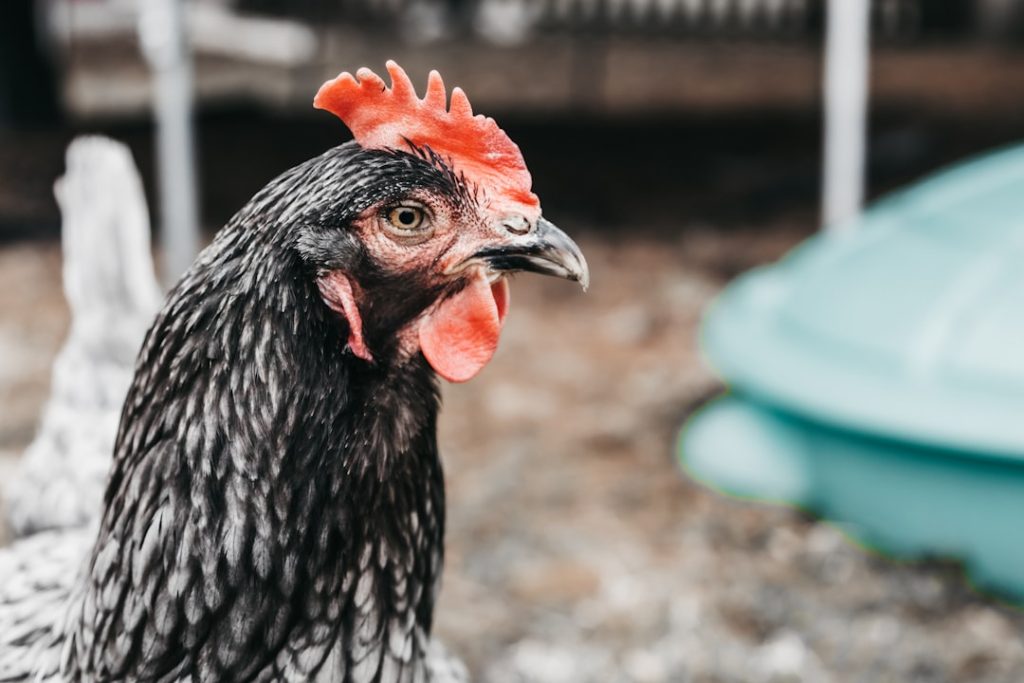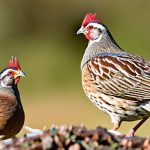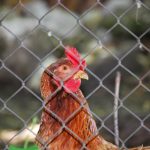When selecting chicken breeds for a backyard flock, several factors should be considered:
Climate: Different breeds are adapted to various weather conditions. Some are better suited for cold climates, while others thrive in warmer regions. Purpose: Determine whether the flock is primarily for egg production or meat.
Certain breeds are known for their high egg-laying capacity, while others are valued for their meat quality. Temperament: Consider the breed’s disposition, especially if there are children or other pets present. Some breeds are docile and friendly, while others are more active and independent.
Space: Evaluate the available area for the flock. Some breeds adapt well to confined spaces, while others require more room to roam. Pest control: If pest management is a priority, consider breeds that are more active and adept at foraging.
By carefully evaluating these factors, chicken owners can select breeds that best suit their specific needs and environmental conditions.
Table of Contents
- 1 Building a suitable coop and run
- 2 Providing proper nutrition and care for your chickens
- 3 Managing waste and keeping the coop clean
- 4 Protecting your chickens from predators
- 5 Understanding local regulations and ordinances
- 6 Creating a comfortable and stimulating environment for your chickens
- 7 FAQs
- 7.1 What are the benefits of keeping chickens in your backyard in Sydney?
- 7.2 What do I need to consider before keeping chickens in my backyard in Sydney?
- 7.3 What are the space requirements for keeping chickens in a backyard in Sydney?
- 7.4 What do chickens eat and how do I care for them in my backyard in Sydney?
- 7.5 What are some common predators of chickens in Sydney and how can I protect them?
- 7.6 Are there any regulations or restrictions for keeping chickens in backyard in Sydney?
Key Takeaways
- Consider the climate, space, and purpose of raising chickens when choosing the right breed
- Build a secure coop and run with proper ventilation, nesting boxes, and perches
- Provide a balanced diet, fresh water, and regular health checks for your chickens
- Regularly clean the coop, manage waste, and use bedding to maintain a healthy environment
- Install predator-proof fencing, locks, and lighting to protect your chickens
- Familiarize yourself with local regulations on raising chickens and obtain any necessary permits
- Add enrichment such as toys, dust baths, and space for foraging to create a stimulating environment for your chickens
Building a suitable coop and run
Size and Space Requirements
A good rule of thumb is to provide at least 2-3 square feet of coop space per chicken, and 8-10 square feet of run space per chicken. This will ensure that your chickens have enough room to move around comfortably and engage in natural behaviors.
Ventilation, Natural Light, and Predator Protection
In addition to size, it’s important to think about ventilation and natural light. Your coop should have plenty of windows and vents to allow fresh air to circulate, while also providing protection from drafts and predators. The run should be covered with wire mesh to keep out predators and provide shade for your chickens.
Choosing the Right Materials
Finally, consider the materials you will use to build your coop and run. While wood is a popular choice for its natural look and insulating properties, it can also be prone to rot and require regular maintenance. Alternatively, metal or plastic coops may be easier to clean and maintain, but they may not provide the same level of insulation or protection from the elements.
Providing proper nutrition and care for your chickens
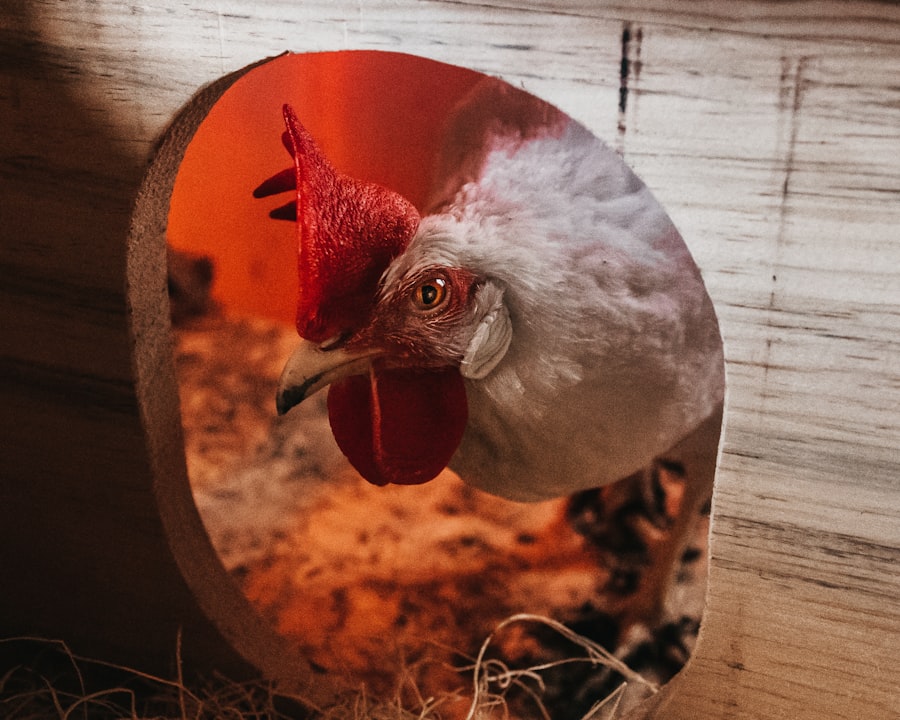
Proper nutrition is essential for keeping your backyard flock healthy and productive. A balanced diet for chickens should include a mix of grains, protein, vitamins, and minerals. You can purchase commercial chicken feed that is formulated specifically for laying hens or meat birds, or you can mix your own feed using ingredients like corn, soybeans, oats, and wheat.
In addition to feed, it’s important to provide your chickens with access to fresh water at all times. Chickens can be picky drinkers, so make sure their water is clean and free from contaminants. In addition to nutrition, proper care is also essential for keeping your chickens healthy.
This includes regular health checks to monitor for signs of illness or injury, as well as providing a clean and comfortable living environment. Regularly clean out the coop and run to remove droppings and soiled bedding, and provide fresh bedding material on a regular basis. Additionally, make sure your chickens have access to plenty of space to move around and exercise, as well as opportunities for dust bathing and perching.
By providing proper nutrition and care for your chickens, you can help ensure that they live long, healthy, and happy lives. Proper nutrition is essential for keeping your backyard flock healthy and productive. A balanced diet for chickens should include a mix of grains, protein, vitamins, and minerals.
You can purchase commercial chicken feed that is formulated specifically for laying hens or meat birds, or you can mix your own feed using ingredients like corn, soybeans, oats, and wheat. In addition to feed, it’s important to provide your chickens with access to fresh water at all times. Chickens can be picky drinkers, so make sure their water is clean and free from contaminants.
In addition to nutrition, proper care is also essential for keeping your chickens healthy. This includes regular health checks to monitor for signs of illness or injury, as well as providing a clean and comfortable living environment. Regularly clean out the coop and run to remove droppings and soiled bedding, and provide fresh bedding material on a regular basis.
Additionally, make sure your chickens have access to plenty of space to move around and exercise, as well as opportunities for dust bathing and perching. By providing proper nutrition and care for your chickens, you can help ensure that they live long, healthy, and happy lives.
Managing waste and keeping the coop clean
Managing waste and keeping the coop clean is an important aspect of raising backyard chickens. Chicken droppings can quickly accumulate in the coop and run, leading to unpleasant odors and attracting flies and other pests. To keep your coop clean and odor-free, it’s important to regularly remove droppings and soiled bedding from the coop floor and nesting boxes.
You can use a shovel or rake to scoop up the waste material, then dispose of it in a compost pile or dispose of it in accordance with local regulations. In addition to removing waste material from the coop, it’s important to regularly clean and disinfect the coop itself. Use a mild detergent or poultry-safe disinfectant to clean surfaces where droppings may have accumulated, such as roosting bars and nesting boxes.
Make sure to rinse thoroughly with water after cleaning to remove any residue from cleaning products. Finally, regularly inspect the coop for signs of wear or damage that could allow pests or predators to enter, such as holes in the walls or gaps in the wire mesh. By managing waste and keeping the coop clean, you can create a healthier environment for your chickens and reduce the risk of disease.
Managing waste and keeping the coop clean is an important aspect of raising backyard chickens. Chicken droppings can quickly accumulate in the coop and run, leading to unpleasant odors and attracting flies and other pests. To keep your coop clean and odor-free, it’s important to regularly remove droppings and soiled bedding from the coop floor and nesting boxes.
You can use a shovel or rake to scoop up the waste material, then dispose of it in a compost pile or dispose of it in accordance with local regulations. In addition to removing waste material from the coop, it’s important to regularly clean and disinfect the coop itself. Use a mild detergent or poultry-safe disinfectant to clean surfaces where droppings may have accumulated, such as roosting bars and nesting boxes.
Make sure to rinse thoroughly with water after cleaning to remove any residue from cleaning products. Finally, regularly inspect the coop for signs of wear or damage that could allow pests or predators to enter, such as holes in the walls or gaps in the wire mesh. By managing waste and keeping the coop clean, you can create a healthier environment for your chickens and reduce the risk of disease.
Protecting your chickens from predators
Protecting your chickens from predators is essential for keeping them safe and secure in their backyard environment. Common predators that pose a threat to chickens include raccoons, foxes, hawks, owls, snakes, and even domestic dogs or cats. To protect your flock from these threats, it’s important to secure their coop with sturdy locks on doors and windows that cannot be easily opened by predators.
Additionally, make sure that any wire mesh covering the run is securely fastened and buried at least 12 inches into the ground to prevent digging predators from gaining access. In addition to securing their living quarters, it’s important to supervise your chickens when they are free-ranging in your yard during daylight hours. Keep an eye out for potential threats such as birds of prey circling overhead or unfamiliar animals lurking nearby.
Consider using scare tactics such as motion-activated lights or sprinklers to deter predators from approaching your flock. Finally, consider adding a guard animal such as a dog or goose that can help protect your chickens from potential threats. By taking these precautions, you can help ensure that your backyard flock remains safe from harm.
Protecting your chickens from predators is essential for keeping them safe and secure in their backyard environment. Common predators that pose a threat to chickens include raccoons, foxes, hawks, owls, snakes, and even domestic dogs or cats. To protect your flock from these threats, it’s important to secure their coop with sturdy locks on doors and windows that cannot be easily opened by predators.
Additionally, make sure that any wire mesh covering the run is securely fastened and buried at least 12 inches into the ground to prevent digging predators from gaining access. In addition to securing their living quarters, it’s important to supervise your chickens when they are free-ranging in your yard during daylight hours. Keep an eye out for potential threats such as birds of prey circling overhead or unfamiliar animals lurking nearby.
Consider using scare tactics such as motion-activated lights or sprinklers to deter predators from approaching your flock. Finally, consider adding a guard animal such as a dog or goose that can help protect your chickens from potential threats. By taking these precautions, you can help ensure that your backyard flock remains safe from harm.
Understanding local regulations and ordinances
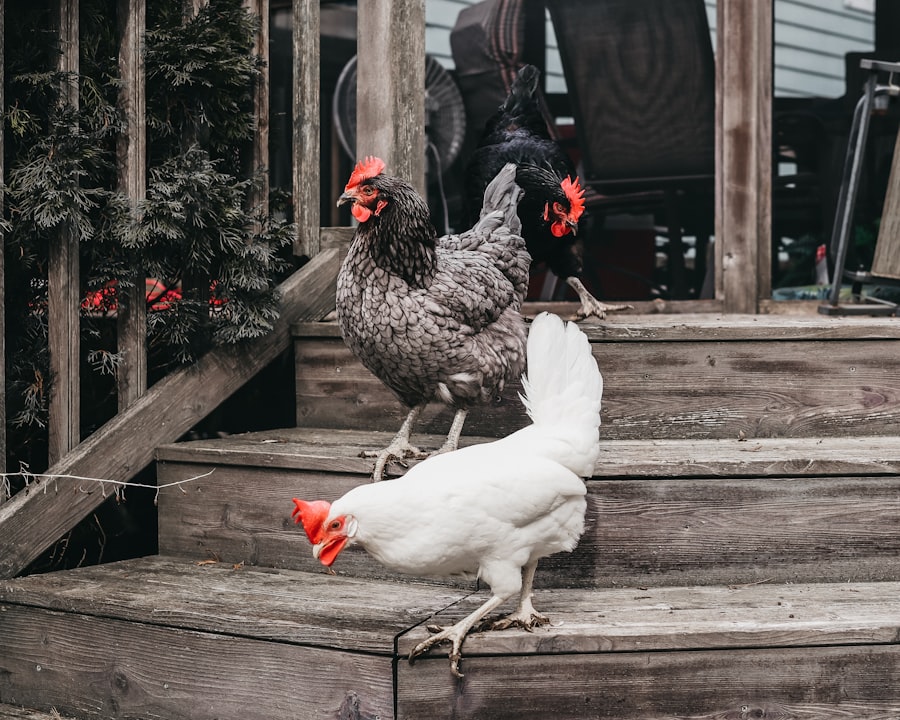
Understanding Local Regulations
Some municipalities have specific rules regarding the number of chickens allowed per property or restrictions on roosters due to noise concerns. Additionally, there may be regulations regarding coop placement or size requirements that you will need to adhere to when building your chicken housing.
Ensuring Compliance
To ensure compliance with local regulations, check with your city or county government office or animal control department for information on any applicable rules or ordinances related to keeping backyard chickens.
Neighborhood Considerations
It’s also a good idea to speak with neighbors about your plans to raise chickens so that they are aware of what to expect in terms of noise or odors associated with keeping poultry on your property.
Creating a comfortable and stimulating environment for your chickens
Creating a comfortable and stimulating environment for your backyard flock is essential for their overall well-being and happiness. Chickens are social animals that thrive on interaction with their flock mates as well as mental stimulation through activities such as pecking at objects or scratching in the dirt. To provide a stimulating environment for your chickens, consider adding enrichment items such as hanging treats or toys in their run area.
Additionally, providing opportunities for natural behaviors such as dust bathing can help keep your chickens entertained while also promoting good health by helping them control parasites on their feathers and skin. Consider adding a designated dust bathing area filled with sand or fine dirt where your chickens can indulge in this natural behavior. Creating a comfortable environment also means providing adequate shelter from extreme weather conditions such as heat or cold.
Make sure that your coop is well-insulated against drafts in winter months while also providing adequate ventilation during hot summer months. Creating a comfortable environment also means providing adequate shelter from extreme weather conditions such as heat or cold. Make sure that your coop is well-insulated against drafts in winter months while also providing adequate ventilation during hot summer months.
In conclusion… Raising backyard chickens can be a rewarding experience that provides fresh eggs, natural pest control in your yard or garden area while also offering companionship through interaction with these charming birds. By choosing the right breed of chicken suited for your climate conditions along with providing proper nutrition care while
If you’re interested in keeping chickens in your backyard in Sydney, you may also want to consider what vegetables quails eat. According to Poultry Wizard, quails enjoy a variety of vegetables as part of their diet. This article provides helpful information on what types of vegetables are suitable for quails and how to incorporate them into their feeding routine. It’s a great resource for anyone looking to expand their knowledge on backyard poultry keeping.
FAQs
What are the benefits of keeping chickens in your backyard in Sydney?
Keeping chickens in your backyard in Sydney can provide you with a sustainable source of fresh eggs, natural pest control for your garden, and a fun and educational experience for the whole family.
What do I need to consider before keeping chickens in my backyard in Sydney?
Before keeping chickens in your backyard in Sydney, you need to consider local council regulations, space requirements, predator protection, and the time and effort required for their care and maintenance.
What are the space requirements for keeping chickens in a backyard in Sydney?
Chickens require at least 2-3 square feet of space per bird in a coop, and at least 8-10 square feet of space per bird in an outdoor run. It’s important to provide enough space for them to move around comfortably and engage in natural behaviors.
What do chickens eat and how do I care for them in my backyard in Sydney?
Chickens eat a diet of commercial chicken feed, supplemented with kitchen scraps, grains, and greens. They also need access to fresh water, shelter, and regular cleaning and maintenance of their coop and run.
What are some common predators of chickens in Sydney and how can I protect them?
Common predators of chickens in Sydney include foxes, cats, dogs, and birds of prey. To protect your chickens, you can use secure fencing, lockable coops, and predator-proofing measures such as burying wire mesh around the perimeter of the coop.
Are there any regulations or restrictions for keeping chickens in backyard in Sydney?
Local council regulations in Sydney may have specific requirements for keeping chickens in your backyard, such as limits on the number of chickens allowed, setback distances from property boundaries, and restrictions on roosters. It’s important to check with your local council before getting chickens.
Meet Walter, the feathered-friend fanatic of Florida! Nestled in the sunshine state, Walter struts through life with his feathered companions, clucking his way to happiness. With a coop that’s fancier than a five-star hotel, he’s the Don Juan of the chicken world. When he’s not teaching his hens to do the cha-cha, you’ll find him in a heated debate with his prized rooster, Sir Clucks-a-Lot. Walter’s poultry passion is no yolk; he’s the sunny-side-up guy you never knew you needed in your flock of friends!

